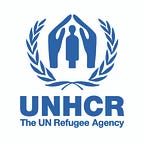Refugees need to take part in peace agreement implementation to ensure a stronger future for South Sudan
By Arnauld Akodjenou
Just under a decade ago, on 9 July 2011, the people of South Sudan celebrated as they became citizens of the world’s newest country. Independence had arrived at last, but with the outbreak of civil war that quickly followed, the joy was short-lived. Today, South Sudan holds the tragic distinction of producing the largest number of refugees on the African continent. That is 2.2 million people, and the greatest tragedy of all is that 63 per cent of the refugee population are under the age of 18. This translates to more than 1.4 million young voices at risk of becoming unheard, unseen, and therefore lost.
In my role as the Regional Refugee Coordinator and Special Advisor for the South Sudan Situation at the UN Refugee Agency, I have had the opportunity to meet hundreds of refugees in camps, settlements, and cities in the neighboring countries of asylum. I listened to them tell me over and over again about how they yearn for peace in their homeland. Visiting a refugee camp in Adjumani County, Uganda, I met an elderly woman. She sat on a mat outside her shelter, her grandson in tow. They looked absorbed in a conversation, holding on to what they know best — hope that they might one day return to a peaceful South Sudan, their motherland. I sat beside her on the mat and listened as she narrated her ordeal. A story of resilience, pain, loss and hope.
She had first come to the camp during the civil war, along with her four sons, relieved to have survived the miseries of the journey. The eldest duly married and, blessed with a son of his own, left for South Sudan after a previous peace agreement had been signed. Soon after the other three followed suit. Twice more the sons moved to and from South Sudan, becoming refugees in Uganda, as the country swung between conflict and peace. This time around she was with her daughter-in-law and grandson, having lost touch with her sons, whom she has not heard from since they returned to their war-torn homeland. Now, three generations sit in exile, hoping for the return of their family and kin. Sons, a father, a husband, uncles, young men — all lost to the ravages of war. A widow nurses her aging mother-in-law and her son. They long for a return to South Sudan.
In September 2018, the various warring parties put down arms and signed the Revitalized Agreement on the Resolution of the Conflict in the Republic of South Sudan under the auspices of the Intergovernmental Authority on Development (IGAD). The peace is generally holding. There is improved humanitarian access. Challenges remain, however, with key pre-implementation activities related to the matters of security sector reform and land disputes still unresolved.
I must give recognition to the South Sudan Government, Opposition, Civil Society and countries in the region involved in the peace negotiations for their willingness to include refugees in the discussion. Throughout the period leading to the signing of the 2018 peace accord, refugees were included in negotiations, attended closed-door meetings and even had the opportunity to share concerns directly with the parties. UNHCR proudly facilitated the participation of refugees in the political talks that culminated in Khartoum on 4th September. Refugees posed tough questions and sought commitments from the government, opposition, and other stakeholders. The best-placed people to articulate the hopes and aspirations of those forced to flee are none other than the refugees and displaced populations themselves.
The Revitalized Peace Agreement recognizes refugees and IDPs as persons with rights, for example, to registration and identification. Other crucial matters that are addressed include provisions related to justice, reconciliation and dispute resolution. These mechanisms and processes are there to find solutions and healing for the injustices that the people of South Sudan, including refugees, have suffered because of the brutal conflict. However, for them to be effective they need to be informed by the people they are meant to serve. This means that the parties and stakeholders must continue to include South Sudanese refugees and IDPs in discussions centered on the implementation of the Revitalized Peace Agreement. Crucially, I would add that the involvement of refugee youth is not only good for the rebuilding of the nation but is also necessary for the accomplishment of the ambitions set out in the Agreement. Without empowering 1.4 million individuals today, who will be the leaders of tomorrow?
I urge the leadership to include refugees during the Pre-Transition and Transition period set out in the Revitalized Peace Agreement. I urge the international community to support host governments and communities so that they can provide education and youth programs for displaced children.
It is time for every voice of South Sudan to be heard so that they can join together to rebuild their country. The citizens of that new country deserve to leave exile and forced displacement behind and instead, celebrate their independence peacefully for decades to come.
Arnauld A. Akodjenou is the Special Advisor and Regional Refugee Coordinator for the South Sudan refugee situation for the United Nations High Commissioner for Refugees. He has worked for the protection of refugees for more than three decades.
